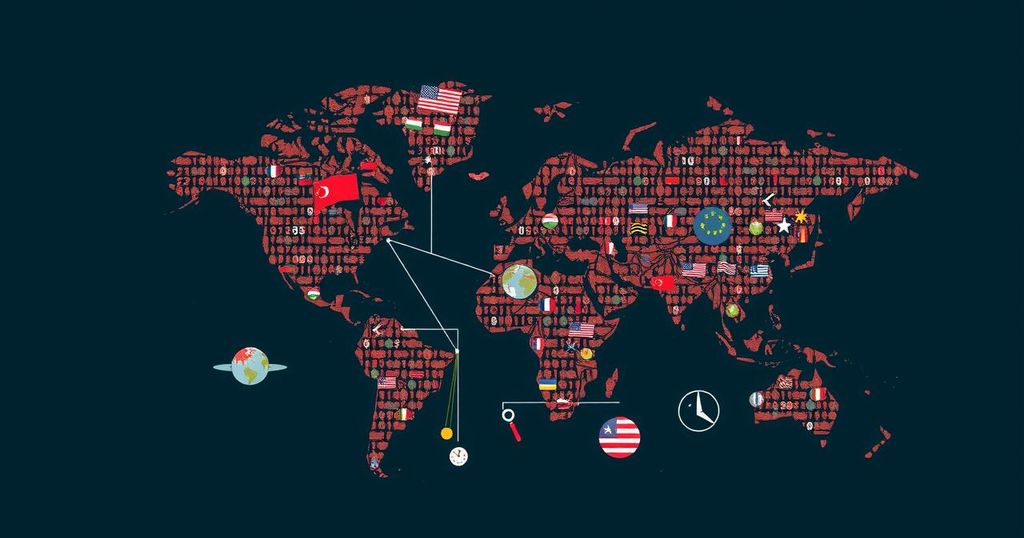The Democratic Republic of the Congo is facing a critical internal displacement crisis with approximately 6.5 million people affected. Disinformation poses a serious challenge to the humanitarian operations of the World Food Programme (WFP), affecting access to vulnerable populations and increasing risks to staff safety. WFP’s response focuses on effective communication, community engagement, and collaboration with local media to combat misinformation and rebuild trust, ensuring the delivery of vital aid.
Disinformation poses a significant threat to humanitarian operations within the Democratic Republic of the Congo (DRC), particularly as the nation grapples with an acute internal displacement crisis affecting approximately 6.5 million individuals, primarily concentrated in four eastern provinces. Wilfred Nkwambi, the head of the World Food Programme’s (WFP) office in northeastern Goma, sheds light on how misinformation and disinformation hinder aid efforts in this tumultuous region. To successfully navigate the complex landscape in conflict-affected areas, WFP must engage with various stakeholders, including non-state armed groups, to secure favorable access conditions for humanitarian assistance. Nonetheless, the spread of false narratives through social media platforms complicates this endeavor, leading to significant challenges such as threats to personnel and interruptions in the delivery of essential food supplies. With an increase in scrutiny from the communities they aim to serve and from armed groups, the credibility of WFP’s efforts appears diminished when misinformation proliferates. To counter these challenges, WFP emphasizes the necessity of effective communication and community engagement. Tailoring humanitarian assistance to local needs is vital; for instance, WFP addressed the community’s unfamiliarity with imported wheat by organizing cooking sessions, thus fostering community collaboration and acceptance. Additionally, WFP keeps a vigilant eye on social media to address and rectify misunderstandings or falsehoods swiftly. The organization also works closely with local media, including community radio stations, to disseminate reliable information and ensure transparency regarding their operations, particularly in rural settings where misinformation can have dire consequences. The ongoing training and educational sessions with local civil society leaders, media representatives, and community members furthermore help to create a foundation of trust and understanding regarding WFP’s humanitarian mission. This proactive stance is essential not only to protect their operations but also to mitigate conflict escalations driven by disinformation. Ultimately, as WFP continues its crucial work in the DRC, fostering trust and ensuring accurate information circulation will be paramount to the success and safety of their humanitarian initiatives.
The Democratic Republic of the Congo faces an alarming internal displacement crisis, attributed to ongoing conflict and the presence of non-state armed groups in the eastern provinces. Humanitarian operations are of utmost importance, but they have been increasingly hampered by the rise of disinformation, which undermines community trust and complicates access to vulnerable populations. The World Food Programme (WFP), operating in regions such as North Kivu, must continuously adapt its strategies to confront the challenges posed by misinformation while delivering crucial aid.
Disinformation significantly undermines humanitarian efforts in the DRC by threatening the safety of aid workers and disrupting food distribution. To combat this challenge, the World Food Programme places an emphasis on effective communication and community engagement. By actively monitoring misinformation and fostering transparency through local media, WFP aims to build trust within communities, ensuring that aid reaches those most in need. Continued efforts to educate and train local stakeholders are essential in overcoming the obstacles posed by the rampant spread of false information, thereby enhancing the efficacy of humanitarian operations in the region.
Original Source: www.wfp.org






